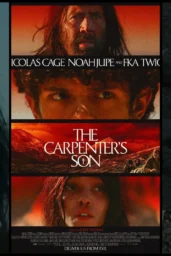Brad Pitt means well. You can tell. He’s the guy who smiles from the front row while someone else accepts the award, who sticks around after premieres just to say thanks to the lighting crew. So when he shows up on the New Heights podcast and starts raving about Maestro, you lean in. “One of the best movies of the decade,” he says of Bradley Cooper’s Leonard Bernstein biopic. “The work speaks for itself.”
He’s not wrong. But he’s not entirely right, either.
Let’s rewind. Maestro premiered at the Venice Film Festival on September 2, 2023, with the kind of pedigree Oscar campaigns salivate over. Netflix behind it. Carey Mulligan alongside. A passion project for Cooper, who directed, co-wrote, co-produced, starred, and basically willed the thing into existence. And the result? Seven Oscar nominations. Zero wins. A cold splash of reality for a film that looked, on paper, like an awards juggernaut.
That stings. Pitt, ever the empath, tried to lighten it with a joke. “He’s used to it. He’s a Philadelphia Eagles fan,” he quipped about Cooper’s legendary nomination streak. But behind the punchline was a deeper frustration: Why isn’t Cooper being taken seriously as a director?
The thing is—he is. And that’s where the disconnect begins.
Because Maestro, for all its formal beauty and arthouse credibility, never quite loses itself in Bernstein’s genius. It studies him. Reconstructs him. But it never breathes him. You don’t forget you’re watching Bradley Cooper—just as you don’t forget the prosthetic nose, the soft lighting, the camera whispering, “Look what we did.” There’s a moment—an astonishing long take of Bernstein conducting—that almost cracks through. But even then, you see the effort. You see the seams.
Is that a dealbreaker? Not necessarily. Plenty of great films have lived somewhere between homage and performance art. But what’s interesting—what Pitt unintentionally surfaces—is how much of Maestro’s identity is wrapped up in effort itself. The sweat shows. And for some audiences, that undermines the illusion. For others, it’s the point.
There’s an industry subtext here too, and Sasha Stone would be the first to clock it: Maestro felt, to many, like a referendum on Oscar ambition. The whisper campaigns during awards season weren’t just about the film—they were about how much Cooper wanted it. And in Hollywood, ambition is sexy… until it isn’t.
Still, there’s something admirable—noble even—about trying to carve your name in marble while everyone else is doodling in the sand. Cooper’s first directorial effort, A Star is Born (2018), was emotionally messy and lived-in. Maestro is meticulous and elevated. Both are sincere. Both fall just short of transcendence.
His next film, Is This Thing On?, is rumored to arrive later this year. It’s a meta-Hollywood comedy. Maybe that’s what Cooper needs—less reverence, more risk. A step away from the pedestal and back onto the streets.
Pitt’s right, in a way. The work does speak for itself. But what it says—quietly, persistently—isn’t “I’m one of the best of the decade.” It’s more complicated than that. It’s a man trying to prove he belongs. And ironically, that’s the most human thing about Maestro.











